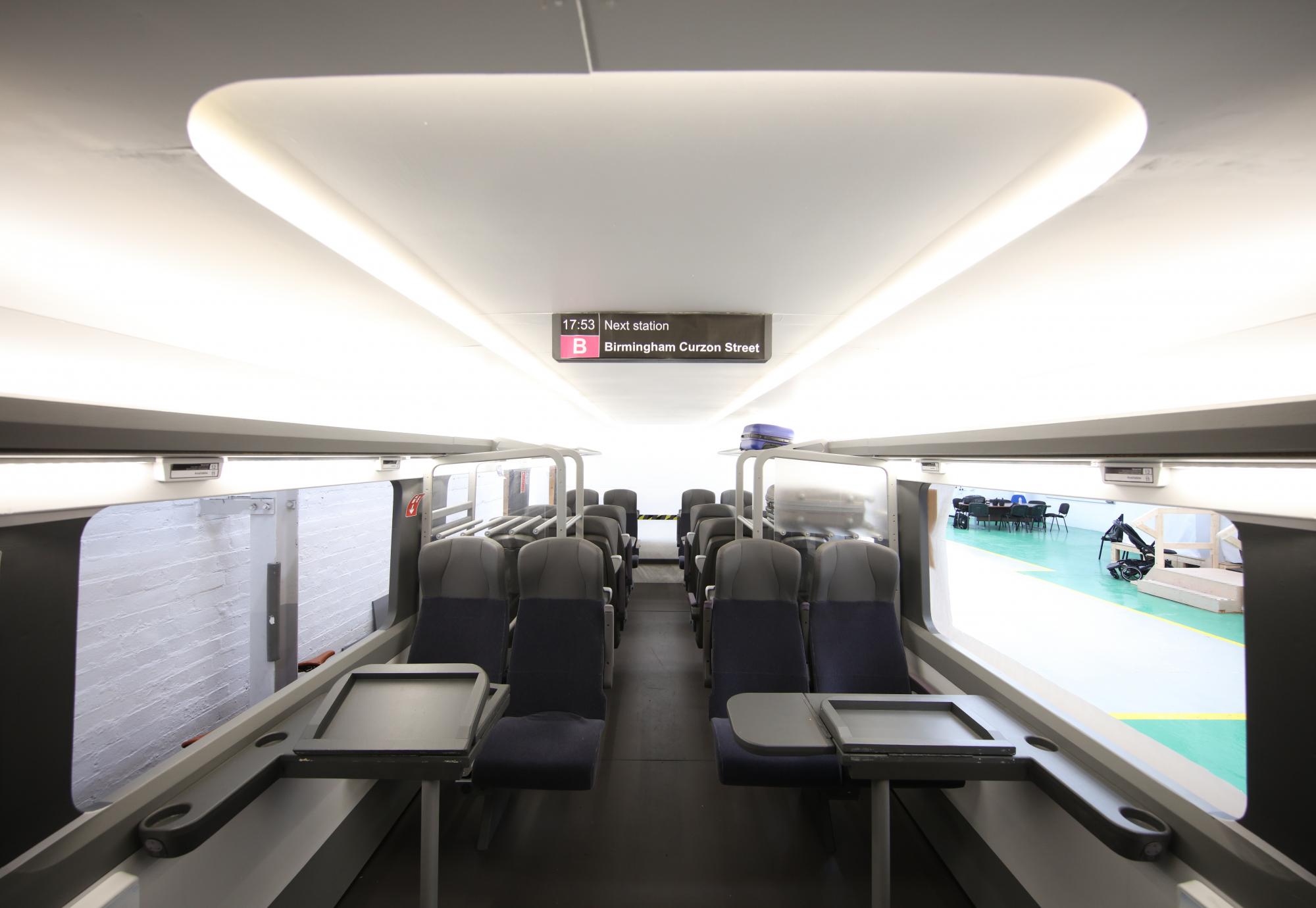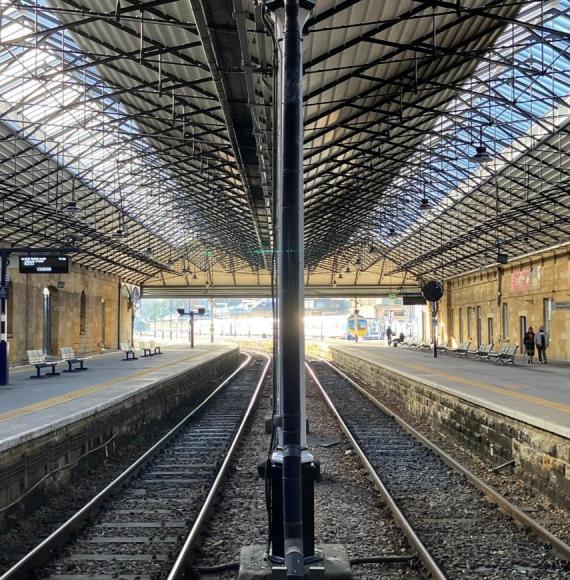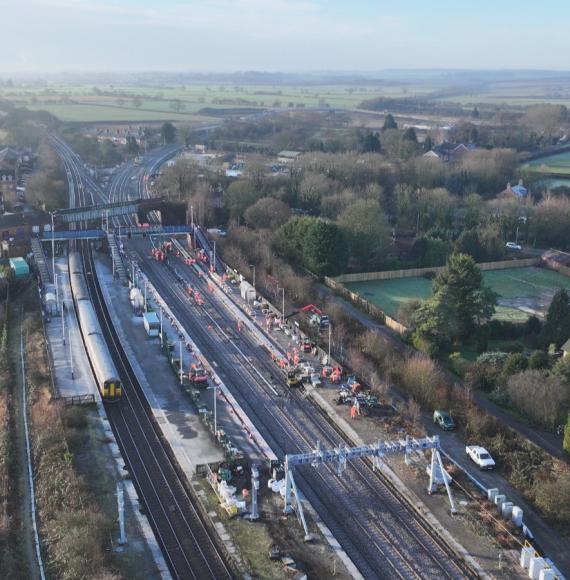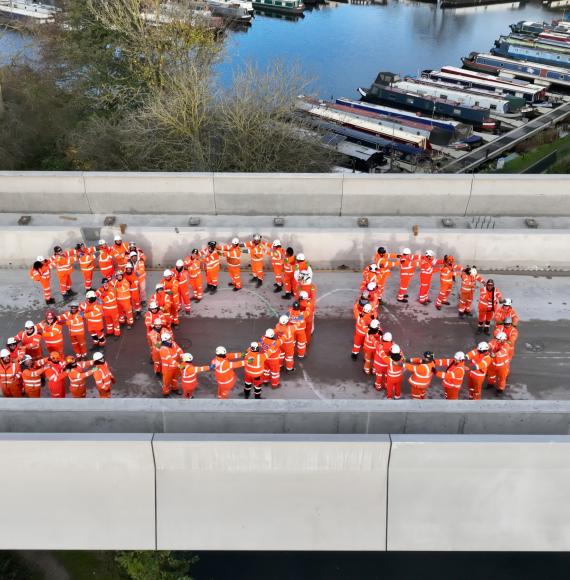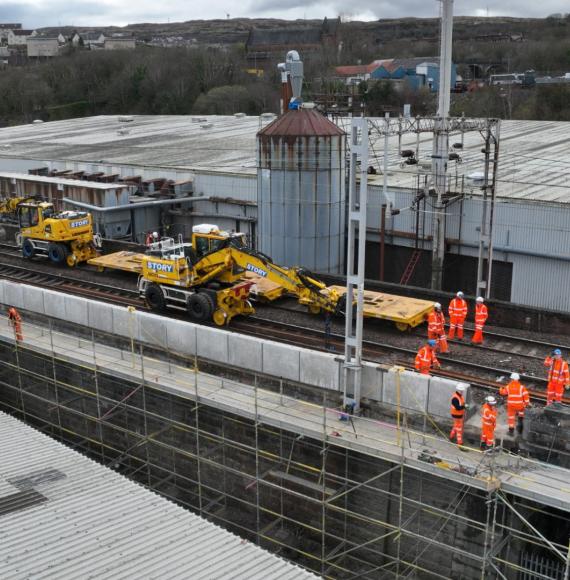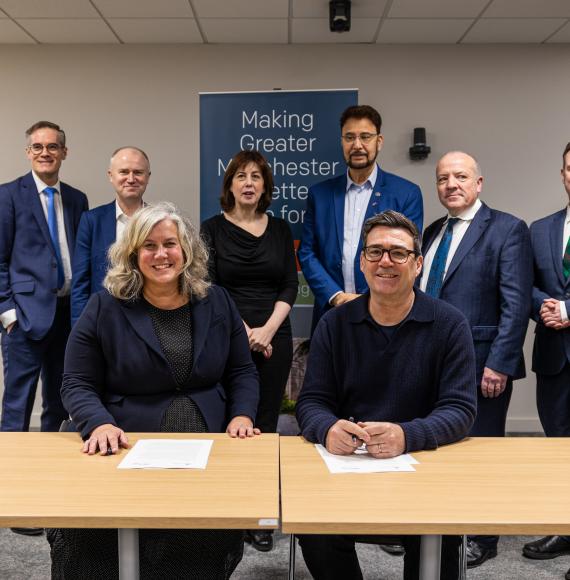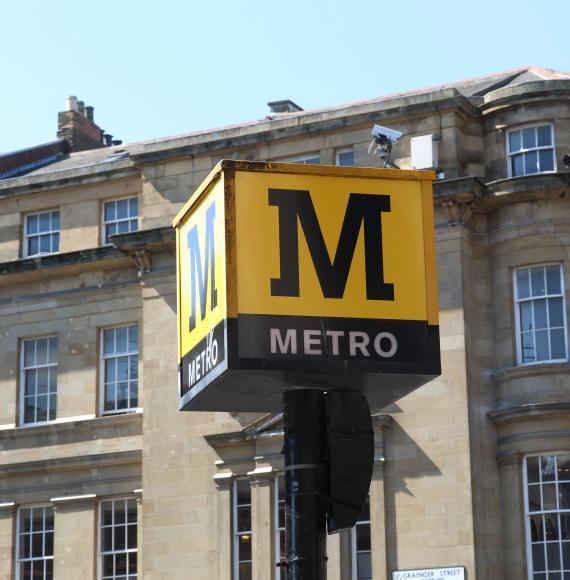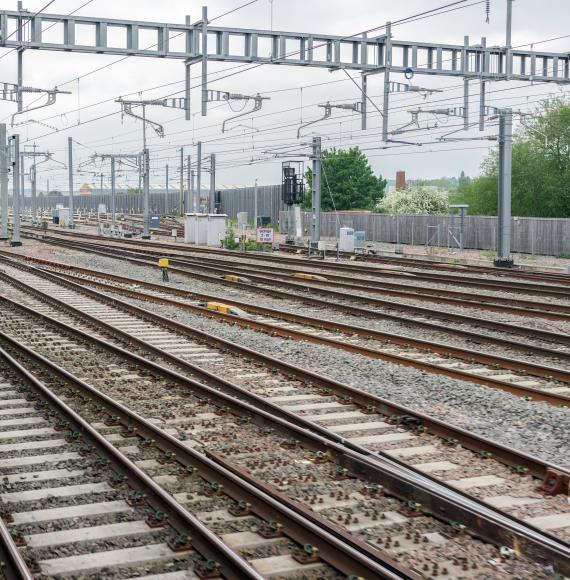Industry professionals now have the opportunity to explore the concept designs for HS2’s Class 895 trains. These designs represent a major step forward in the development of the UK’s high-speed rail network.
A life-size model carriage has been created to showcase the interior layout and design features of the new trains. This model offers a tangible glimpse into the future of high-speed rail travel, highlighting innovations in passenger comfort, accessibility, and sustainability.
The concept model is the result of close collaboration between HS2 Ltd, the future high-speed rail operator West Coast Partnership Development (WCPD), and the joint venture company responsible for building the fleet, Hitachi-Alstom High Speed. Their combined efforts aim to deliver a world-class travel experience that meets the needs of modern passengers while supporting the UK’s broader transport and environmental goals.
This initiative underscores the ongoing commitment to transparency and public engagement as the HS2 project progresses toward its next milestones.
James Dawson, HS2 Ltd’s senior rolling stock engineer said:
“We’ve dedicated time and energy into understanding what matters most to people when they travel by train, and by listening and acting on feedback we can be confident that our interior designs will meet and exceed passengers’ needs.
“These trains will run across Britain on high-speed and conventional lines for decades to come, so it’s important we get the fundamental design right, not just for today but also for the future.”
The public has played a major role in shaping the initial design concepts. Twenty dedicated user groups and a consumer focus group of over 500 people have helped to inform the passenger experience programme of work led by WCPD. This is understood to be the most extensive user development exercise ever for a new train fleet built in the UK.
New design features will help to ensure the train will be accessible and inclusive for all. Step free access at new HS2 stations, reprofiled grab handles, audio announcements and visual display screens in the toilet cubicles are just some of the positive changes being made. Customers travelling with mobility aids will also have greater freedom to select their seat and wheelchair users can expect equal provisions as found at all other seating on the train.
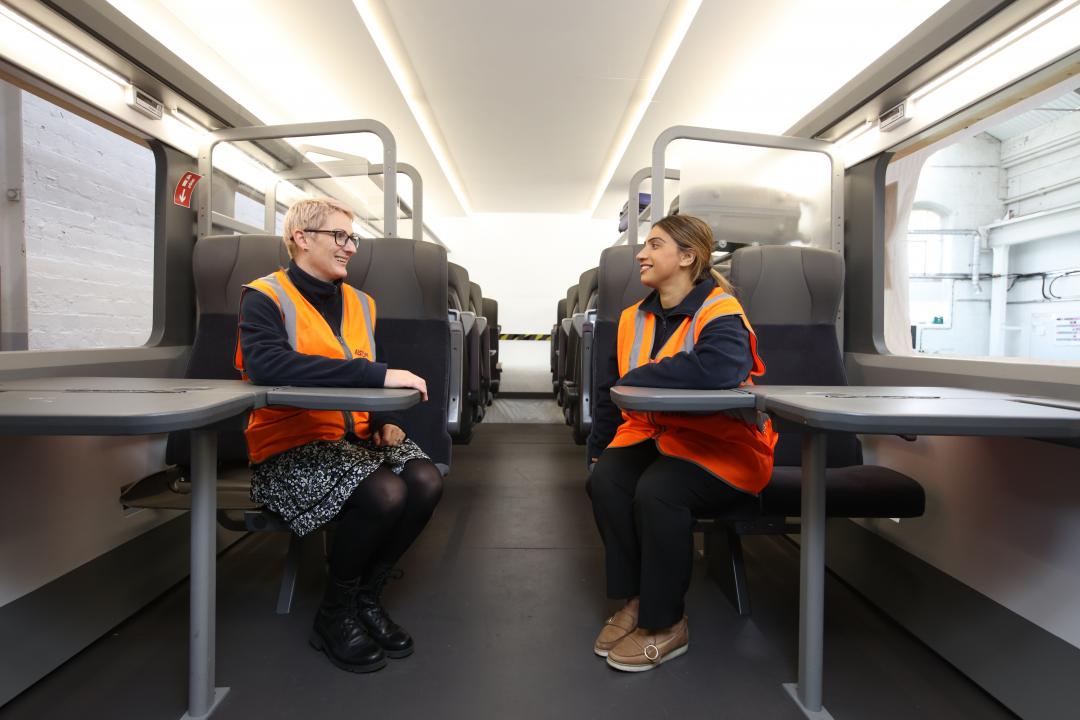
Rigorous user testing has helped to define the design requirements to ensure the onboard facilities meet the needs of those travelling for work, leisure, as a solo passenger, or with friends and family.
The design features include:
- A generous seat pitch – with more leg room than any other standard class UK train
- Improved overhead and beneath the seat luggage storage, recognising that passengers prefer to have their possessions close by
- Baby changing tables, clothing/bag hooks and a pull-down child seat in toilet cubicles, reflecting feedback from families travelling with small children
- Saloon seats with a spacious dropdown tray table and a separate shelf to stand phones on when viewing video content
- Multiple power and charging options including 3-pin plugs and USB-C
- Redesigned horizontal bike storage, which maximises space and makes it quicker and easier for cyclists to board and alight
HS2 Ltd awarded the contracts to build Britain’s next generation of high-speed trains to the Hitachi-Alstom High Speed joint venture in 2021. The contracts, worth around £2bn, will provide a major boost to the UK’s rail manufacturing and supply chain sectors.
The fleet of trains will be designed and built at three key UK sites – Derby, County Durham and Crewe. It is estimated that this will spearhead the creation of around 2,500 jobs in the Midlands and the North – including new apprenticeships. The trains will be maintained at the new HS2 depot in Washwood Heath, Birmingham.
The bogies will be manufactured in Crewe, the bodyshell welding and electrical installation will be completed in County Durham, and the interior fit out will be completed at the Hitachi-Alstom High Speed joint venture facility in Derby.
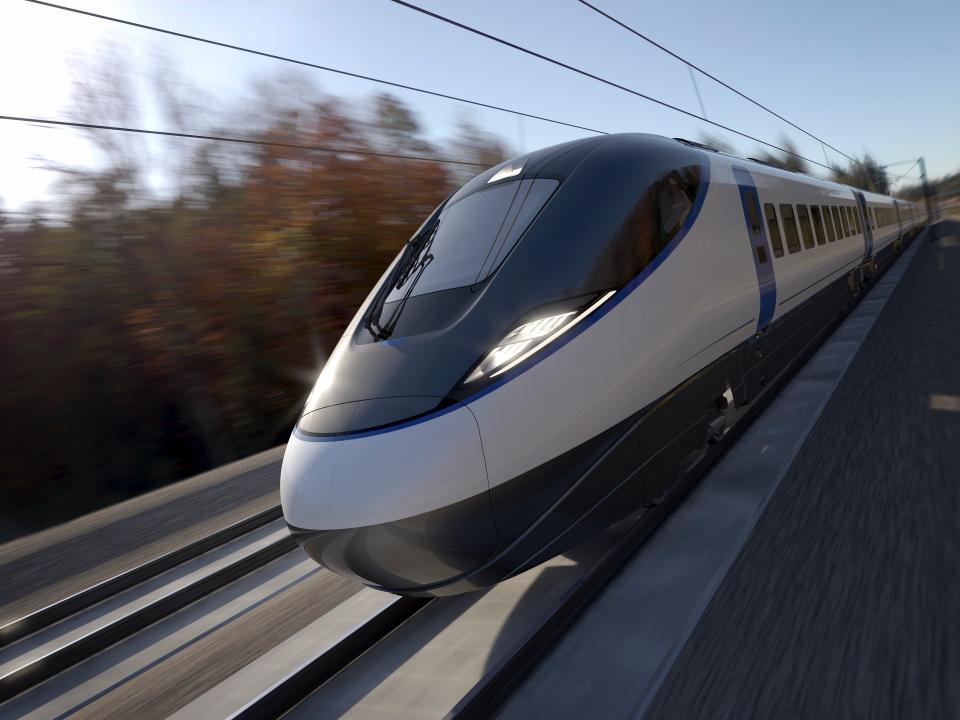
James Grundy, Project Director for Hitachi-Alstom High Speed, said:
“As we progress towards delivering the next generation of high-speed trains for HS2, the feedback from passengers has been invaluable. Their insights have helped us develop and refine the design concept, to ensure that our trains not only meet but exceed expectations for accessibility, comfort and convenience. Engaging with a diverse range of future passengers, including those who may not typically consider train travel, has been crucial in shaping the features that will make a real difference to their experience.
“Hitachi-Alstom High Speed is committed to putting passengers at the heart of every decision. Working with our stakeholders and closely with the public, we are confident that we’re creating a fleet of trains that will set a new standard for intercity travel in the UK. When HS2 is operational, this collaborative approach will underpin a transformative and stress-free journey for a wide range of people.”
The all-electric trains will be designed to operate on both the HS2 network and the existing rail network – enabling HS2 trains to travel north towards Manchester, Liverpool, and Glasgow in the future. Capable of speeds of up to 225mph (360km/h), they will be amongst the quickest, quietest, and most energy efficient high-speed trains operating anywhere in the world.
Detailed design works are continuing ahead of manufacturing of the exterior bodies. HS2 Ltd’s Chief Executive, Mark Wild, is leading a comprehensive reset of the HS2 project to ensure the railway can be delivered efficiently and to the lowest reasonable cost - timescales may therefore be subject to change.
Image and video credits: HS2

